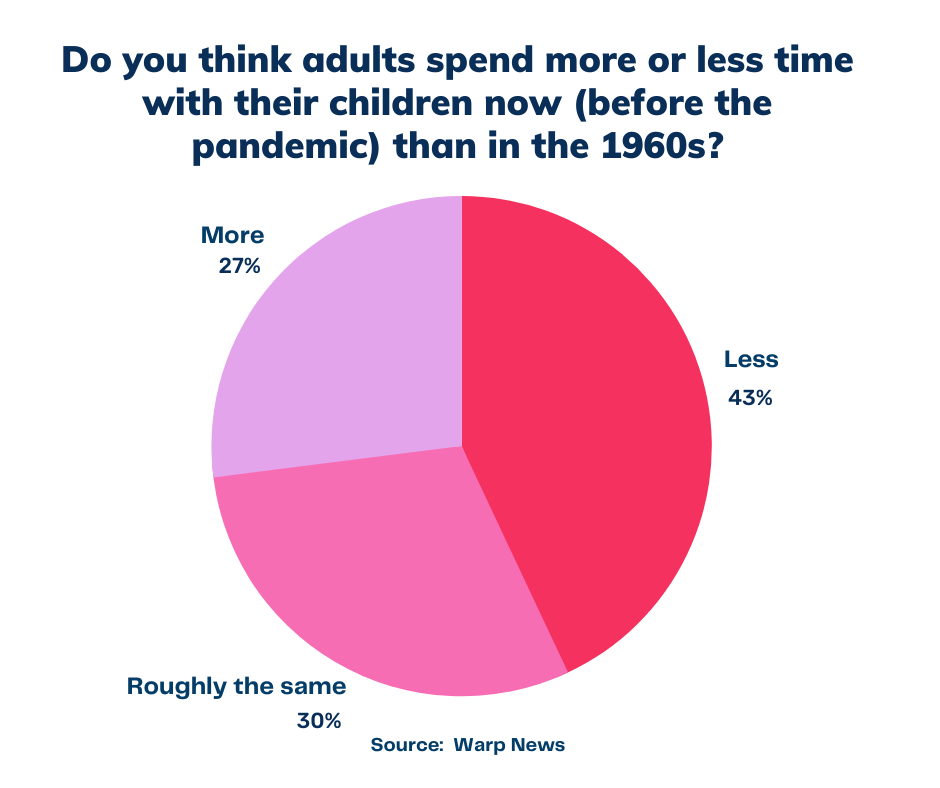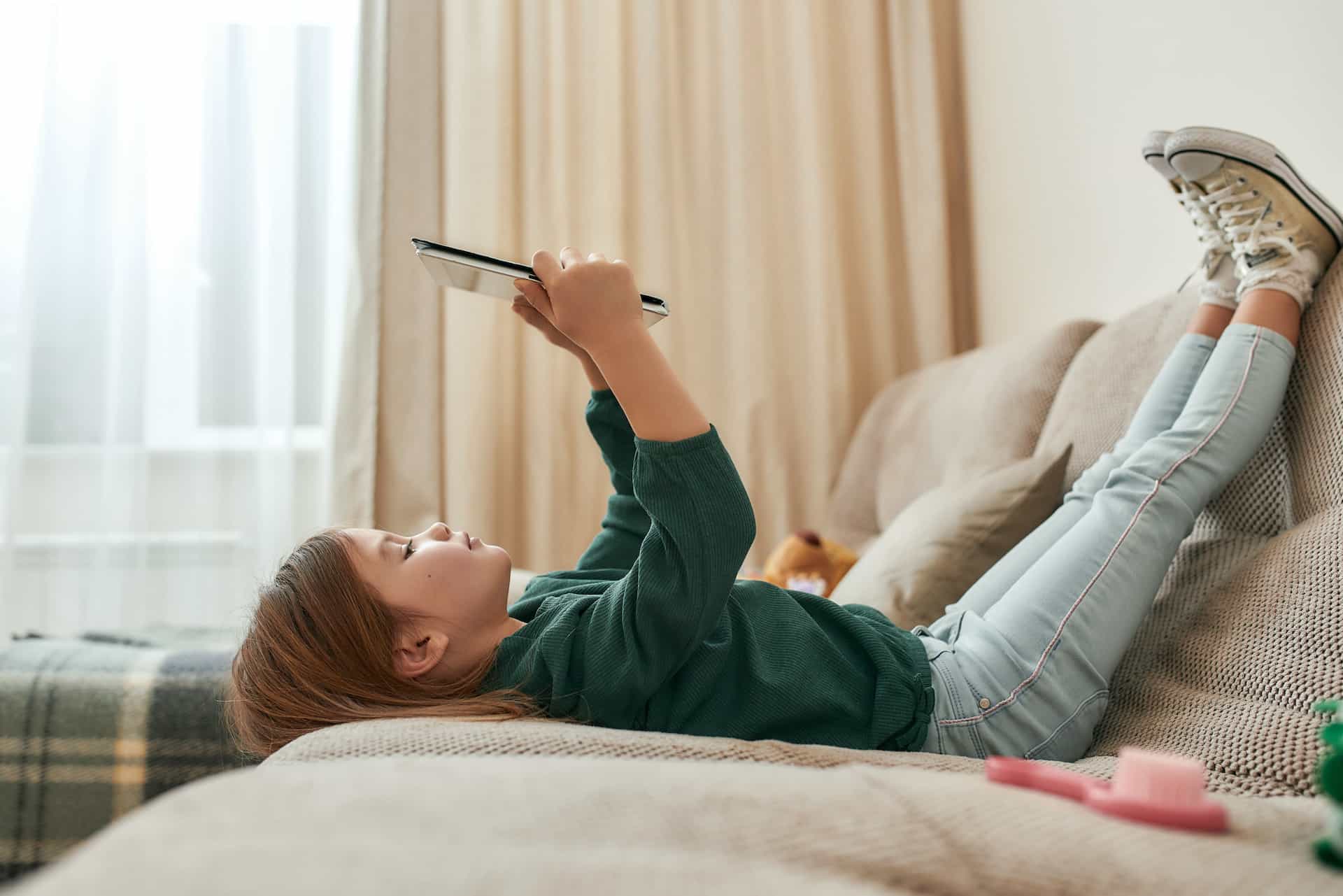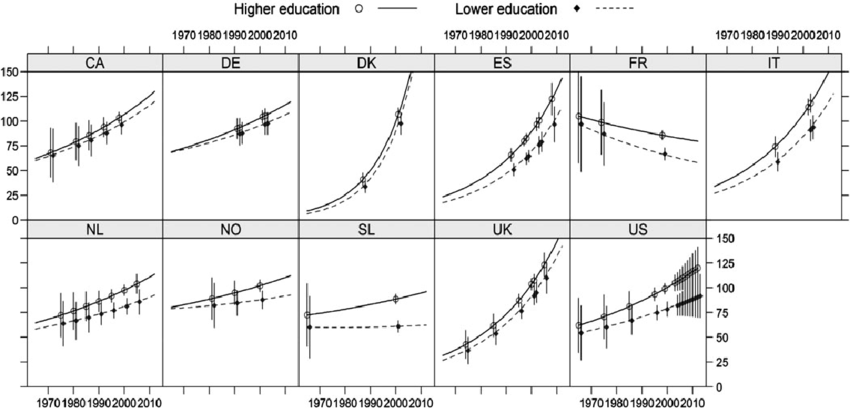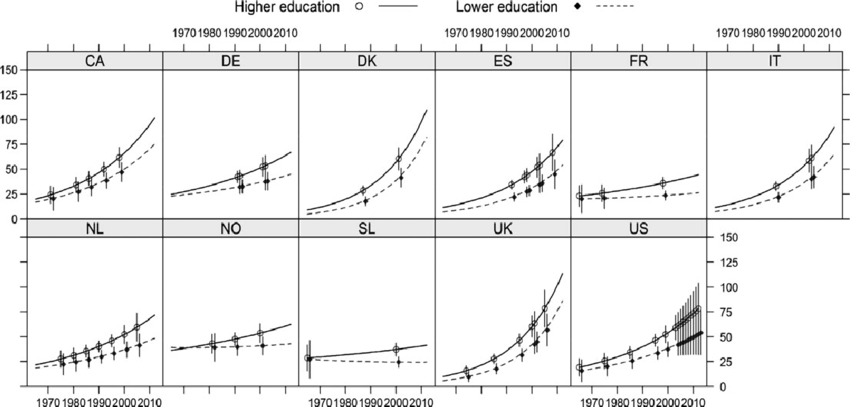
💡 Optimist's Edge: Spending Time With Kids
Screen time, career, exercise, and hobbies. Most parents have a guilty conscience because they feel that they don't spend enough time with their children and, according to our survey, most people believe that we spend less time with our children now than in the past. But is it really true?
Share this story!
Summary
📉 What people are wrong about
Most people, 43 percent, believe that we spend less time with our children now than in the 60s, according to our survey. 30 percent think that the time spent is about the same while 27 percent think we spend more time with the children now.
📈 Here are the facts
In fact, we spend twice as much time with our children now as we did 50 years ago, and in some cases, it is significantly more than that. This shows a comprehensive study conducted in 11 countries.
Both mothers and fathers spend more time with their children, but mothers generally spend more time. Education level is an important factor; the higher the education the parents have, the more time they spend with their children.
💡 Optimist's Edge
We spend significantly more time with our children now than in the 60s, and the last thing we need is a guilty conscience because we should give our children even more time. Instead, make the most of this all-time high amount of time.
Having a lot of time is one side of the coin, the other perhaps being a bit of a cliché: quality time. To give the child attention and do things that you both enjoy doing together. And yes, a screen can definitely be involved. While you're at it, let go of screen time anxiety as well.
👇 How to get the Optimist's Edge
Things weren't better in the past in this instance, either. The idealized past where families devoted more time to one another than today never existed. That knowledge alone gives you an edge because you know you don't need to have a guilty conscience.
On the contrary, you are probably a historically unique parent who spends an enormous amount of time with your child. What an opportunity! Take advantage of this opportunity through Golden Hour - an hour every day that you, with full focus, spend with your children.
The level of education is an important factor, so the strong global trend that more and more people go to school points towards a continued increase in parents' time with children. Increased education has many positive effects, and by supporting education projects you can contribute too.

📉 What people are wrong about
In our survey, 43 percent of the respondents believe that we spend less time with our children now than in the 60s. 30 percent think that the time spent is about the same while 27 percent think we spend more time with the children now.

A lot of people have a guilty conscience
There are several studies that show that parents have a guilty conscience about spending too little time with their children.
According to Play Report, a survey IKEA conducted based on 16,174 internet-based interviews, almost every second parent, 49 percent, feel that they do not have enough time to play with their children and about as many have a guilty conscience for it. That figure has increased compared to the result from 2009.
In Statistics Sweden's survey from 2019, one in four parents answers that they find it difficult to combine work and leisure. Over a span of six years, the proportion who experienced difficulties has increased from 18 to 25 percent.
Screen time – a constant dilemma
The defining issue of our age in regards to time with our children is, of course, screen time. This was a frequently recurring term as we did research for the article you are now reading.
The report Ungar & Medier from the Swedish Media Council states that 51 percent of parents are worried about how screens affect their children and 63 percent have a bad conscience about their children's screen time.
Of course, it is not possible to claim that the respondents in these surveys "are wrong" in their statements of having a guilty conscience or difficulties in working things out. However, there is every reason to put the discussion in a historical context and shift the focus to the opportunities most parents have today to spend time with their children, with or without a screen.

📈 Here are the facts
Feelings of guilt and a bad conscience about spending too little time with our children are a sign of our time. But do we really spend less time with our children today than 30, 40 or 60 years ago?
The answer is: Absolutely not. Parents spent much less time with their children then than now, but they most likely did not have a bad conscience for it. In fact, today's children spend twice as much time with their parents now as they did in the 60s.
This is the findings of a study by Giulia M. Dotti Sani, of the Collegio Carlo Alberto, and Judith Treas, of the University of California Irvine. These two researchers have measured how much time parents spend with their children in: Canada, Denmark, Germany, Spain, France, Italy, the Netherlands, Norway, the United Kingdom, the United States, and Slovenia. They have compared 1965 with 2012.
Difference between mothers and fathers
In almost all countries that have kept track of how much time parents spend with their children daily, the number of minutes has doubled since 1965. There is still a gender difference in who spends the most time with the children, although the proportion for both has increased.
In 1965, the average mother spent less than an hour a day with her children. In 2012, that time had increased to over an hour and 40 minutes a day.
The largest increase has taken place in Denmark, where the mothers of 1965 spent less than 20 minutes a day with their children, but in 2012 it was up to 230 minutes a day. In the UK, mothers spent an average of 30 minutes with their children daily in 1965. Today it is 150 minutes. The only country that stands out in the study and where time has decreased is France where mothers have gone from spending about 100 minutes daily to between 55 and 80 minutes depending on the level of education.

As for fathers, the time they spend with children has gone from around 20 minutes a day to an average of over an hour, and in many countries, men spend an average of 100 minutes a day with their children.

There are also studies that show that Swedish fathers spend far more time with their children today compared to how it was in the 1960s and 70s. Today, a father spends an average of one hour and 15 minutes every day with his children, while the mother is with the children for two hours and 35 minutes, according to statistics from Statistics Sweden (2004).
Level of education and age are important factors
The level of education is an important factor in how much time parents spend with their children. Highly educated people spend significantly more time with their children than people with a lower level of education, according to the Sani and Treas study. In several countries, highly educated men spend 30 percent more time with their children.
Another important factor for fathers is age. According to figures from the Swedish Social Insurance Agency, for example, 35-39-year-old fathers take far more parental days than 30–34-year-old fathers.
According to a study, conducted at the University of Gothenburg, amongst fathers who take at least six months of paternal leave per child, the common denominator is that they belong to a middle-aged middle class with a university education. They often have flexible jobs. Life experience and maturity appear in the study as important factors in prioritizing young children. It seems like the modern father is not characterized by a young man but a slightly older father who has the time and money to be at home and who has a stable position in the labor market.
An interesting fact in this context was that Sweden in 1974 was the first country in the world to make men legally entitled to paternal leave.

Better than the 60s – so what?
So compared to 1965, we spend significantly more time with our children today, but what then?
The curve does not go straight in one direction. Among other things, Daniel Hallberg at Uppsala University studied how parents between 1984 and 1993 used their time and could show that despite the children being given priority, they were given less and less time. In Finland, the 2017 "School Health" survey was conducted, which indicates the same thing.
"There are natural explanations for this. Women are more active in their professional lives today than before. Society as a whole has changed a great deal and as parents, we have quite a lot of demands on ourselves professionally. All of this contributes to us spending less time with our children.", Pia Graniittiaho, unit manager and expert in child and family work at the Child Welfare Association, told YLE.
More flexibility and less commuting
But in 2020, a pandemic swept the earth and the situation changed considerably for most parents. Although many experienced increased stress, lost jobs and income, it also meant a positive development. Parents got more time for their children.
According to a study conducted by the Australian Institute of Family Studies, 61 percent of fathers answered that, due to restrictions, they spend more time with their children in learning and school work. 46 percent spent more time with calmer forms of play, arts, and crafts and 21 percent spent more time playing computer or video games with the kids.
Quantity + quality = WIN!
So we spend more time now than ever with the kids. But quantity is of course not everything. The somewhat cliché expression "quality time", which is referring to
paying full attention to the child and doing things that both enjoy together, is vital.
A study of fathers' influence on children shows that it is not primarily the amount of time that is important, but rather the quality time with the children. In families where the fathers stated that they liked being a parent, the children had a 28 percent lower risk of showing signs of behavioral problems.
The conclusion from the study shows that the psychological and emotional aspects of the parent's involvement in the children's upbringing, especially how the father sees himself in the parental role and adapts to it, is an important factor in the children's upbringing.
💡 Optimist's Edge
The view of children and young people has gradually changed over the last 100 years. Instead of being seen as unfinished adults and shunned into the corner, they have become a focal point, with rights of their own.
90 percent of children in Sweden are very satisfied with their family relationships, according to a report from the Children's Ombudsman (2003) and according to a report from BRIS, most children in Sweden feel that their parents are present, share important events, listen and take them seriously.
We spend significantly more time with our children now than in the '60s and the last thing we need is a guilty conscience that we should give our children even more time. Instead, use this historically large chunk of time together with your children in a good way.
Having a lot of time is one side of the coin, the other is what is sometimes in a slightly clichéd manner called quality time: paying attention to the child and doing things that both enjoy together. And yes, it can definitely be with a screen. While you're at it, drop the anxiety over screen time as well.
👇 This is how you get the Optimist's Edge
For many of us, there is more time than ever to devote to the children, but research shows that it is important to use it qualitatively as well. So how do you do that in the best way?
Golden Hour. An initiative that has received very good results has been implemented in Ireland and it is called "Golden Hour". The initiative was created to help parents balance time for homework and caring for children during the pandemic. Between 12pm-1pm every working day in May 2020, parents were encouraged under the slogan "Let's Play Ireland" to spend time playing with their children. Over 80 percent of the respondents thought that the initiative was valuable and should continue, and overall Golden Hour was seen in a positive light. Your golden hour with the children does not have to be exactly 12pm-1pm, of course, and if you have older children, there may be other activities. But setting aside a specific time for the children where you as a parent focus exclusively on them gives you a nice edge and a better relationship with your children.
Education. There is a strong link between education and how much time a parent spends with their children, especially for fathers. Therefore, you can give yourself, and others, an edge by educating yourself or supporting educational projects. Higher education often leads to more flexible working hours and better finances, which makes it possible to be freer with the children. Highly educated people also usually have children later in life. For fathers, this means that they spend more time with the children. Highly educated mothers usually have fewer children, which means that more time can be devoted to each child. Education, of course, has many more positive effects than that. If you want to help, you can, for example, support Save the Children's educational initiatives.
Guilty conscience - forget it. Last but not least. Things weren't better in the past in this instance either. There never was an idealized time of close nuclear families that spent more time together. That knowledge alone gives you an edge, because you know you don't have to have a bad conscience. On the contrary, you are probably a historically unique parent who has an enormous amount of time for your child - what an opportunity!
You have the advantage of having this knowledge before most others - what do you do with your Optimist's Edge?
❓ What more can you do?
We are happy if you would like to share your thoughts about this article with other premium supporters on our Facebook group.
Note! The survey was conducted on 500 respondents via Google Surveys.
✍️ Writer: Magnus Aschan
🔍 Research: Erik Almqvist
By becoming a premium supporter, you help in the creation and sharing of fact-based optimistic news all over the world.


